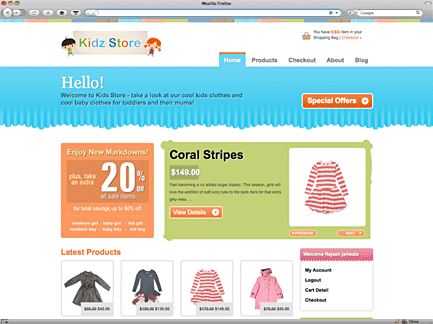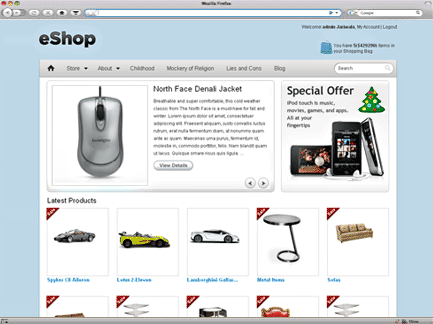Save Time, Money and Take Control
The longer I coach Indie Business owners, the more I am persuaded that our success requires that we become our own best media outlets. We must become the news we want to be. While traditional media outlets and publicists can complement our efforts, ultimately, the responsibility rests with us to literally become the media on our behalf. After all, we have access to all of the tools needed to create interesting and informative content that can be delivered directly to our target audience.

Over the years, I have hired PR firms, done my own media outreach and created outlets of my own, including Indie Business Radio, my Twitter home and this blog. My experiences and the work I have done with thousands of Indies confirm my belief that, as great as it is to be quoted in mainstream media, at the end of the day, each Indie is his or her own best mouthpiece.
This truth is pointedly illustrated by the recent experience of my friend, colleague and Indie Beauty Network member, Jo Ann Hines, the Packaging Diva. (Throughout this article, "writer," "reporter" and "blogger" are used interchangeably, a testament to the ever changing and ever expanding media landscape.)
Who Is Jo Ann?
Jo Ann is a seasoned packaging expert with a knack for helping Indies find the packaging they need to make their products stand out in the crowd. Through my Media Leads Program, Jo Ann has been interviewed by several bloggers and journalists who have quoted and/or featured her in various media outlets.
The Media Outlet
Recently, through the Media Leads Program, Jo Ann was interviewed by a writer for BrandWeek, which touts itself as a publication that delivers "the latest breaking marketing industry news and analysis, along with commentary that puts that news into perspective."
The Query
The writer for BrandWeek issued a query seeking experts to comment for an article on businesses that fail even though they have green business models. Jo Ann emailed the writer in response to his query. He quickly contacted Jo Ann, and then interviewed her by phone for about 20 minutes so she could expand upon and explain some of the information contained in her email reply.
During the interview, Jo Ann shared several of her expert insights in order to provide content for the article. After the phone call, Jo Ann invested more of her time to answer the writer's emails containing requests for clarification and follow up.
The Story
Jo Ann receives Google Alerts when her area of expertise is covered online, so when the BrandWeek story was published, she received a Google Alert. Imagine her surprise and disappointment when she discovered that, even though some of the information in the article came directly from her, her name was not mentioned at all.
Jo Ann landed the interview, but not the recognition. And that's not fair.
Unfortunately, fair is not always the name of the game. Reporters are busy. They may interview dozens of people for one story, which sometimes means they mix up sources or just forget that something they heard came directly from a specific person. That's not an excuse, but it is reality. On the other hand, some reporters intentionally or carelessly fail to credit someone who has helped them tremendously.
Who knows what happened here? Maybe it doesn't matter because the result is the same. Jo Ann invested her valuable time and got nothing out of it, except for the satisfaction of helping someone and the experience of being interviewed on a topic she is passionate about.
These are both valuable experiences but at the end of the day, when your business is on the line, it's nice to be quoted and credited when you've invested your time, energy and experience to help a member of the media create a good article.
Jo Ann's experience caused me to wonder how she handled the situation. I asked her to give me the scoop, and here's what she said.
dM: How often does this happen?
Jo Ann: Out 5 interviews, 4 reporters will generally quote me directly with a credit. The 5th does not, and I have found that it's usually high profile reporters trying to make a name for themselves as experts in a particular field. They want to be seen as the experts, so they don't give credit where credit is due.
dM: 4 out of 5 is not a bad ratio, but still, how do you handle situations like this?
Jo Ann: I try to be nice about it. I usually write a thank you note after the article is published, which nicely alludes to the fact that they quoted me but didn't mention my name.
If the same reporter contacts me in the future, I ask them directly to quote me as a source if they use my input.
You always have to protect your interests. In this particular case with BrandWeek, however, I felt comfortable because the reporter actually called me on the phone. Usually, email communication is all you can expect. When a reporter calls, it typically means they are more serious about using you as a source.
I have found that there's a fine line between being helpful and being pushy when dealing with the media. But if I get burned by a reporter once, I'm very cautious how I work with them the next time.
dM: Is it worth it to even receive and respond to media leads, when your business might not receive credit if you are interviewed?
Jo Ann: Absolutely. Yes, it's worth it. When you get mentioned in even a single major publication, it lends enormous credibility to your products and services. This always leads to new business.
I consider myself very media savvy. I spend time daily getting my name out there, using whatever reasonably priced vehicles I can find. My efforts have yielded good results. I have been quoted in all major newspapers, and in magazines like Entrepreneur, Fortune Small Business and on NBC.
Like you always say, dM, it's great to get media leads from elsewhere, even your Media Leads Program, but the real key is doing some of the legwork yourself. It's a component of what I do every day. Whether it's writing articles for other publications, publishing my own email newsletters, issuing press releases, blogging or social networking, if you want to connect with your customers and potential customers, you have to work at it all the time.
The Tips
As an Indie, the most valuable commodities you have are your time and your innate creativity. If you manage both well, it rarely matters that you are also cash poor. There are plenty of exceedingly boring and ineffective cash rich businesses. But Indies have advantages in that we are nimble, creative and can often see payoffs quickly following wise investments of our time.
When a member of the media interviews you, you have no guarantee that you'll be rewarded by being included in the finished product. But that's not the end of the world. There are always new media opportunities, including those you can create yourself using your blog, email newsletter, podcast, radio show, website and other social media outlets that you own and control.
When dealing with the mainstream media, here are some tips to help save you time and money, and maximize your chances of having a positive experience.
1. Only Respond to Queries For Which You Are Qualified
One of the most common mistakes Indies make is trying to fit a square peg into a circle-shaped hole. Don't do this. If a blogger asks for examples of candles made from natural soy wax, don't send a reply pitching your natural beeswax candles. Likewise, if a reporter requests input from experts on a particular topic, don't reply unless you are in fact an expert on that topic. To do otherwise wastes your and the reporter's time, and risks your credibility.
The best media opportunities are the ones you are uniquely qualified for, and there is probably no shortage of them. You just have to be diligent in responding to the ones you find out about. You also have to be constantly on the lookout for creative ways to share what you have to offer using media outlets that you control such as your own blogs, email newsletters, Facebook page, etc.
2. If Interviewed, Ask to Know Exactly What It's For
If you land an interview, there's nothing wrong with asking exactly what the interview is for. What's the purpose of the story? What publication is it for? When is it scheduled for publication? Are you being interviewed for "background" only, which means you are just providing basic information to help the reporter build the story? Or is the writer looking to you as a major source of information?
You can also ask for confirmation that, if your expertise or words are quoted, you will receive a credit of some kind. For an online publication, the ultimate credit is your name and the name of your business with a hyperlink to the website of your choice.
Because some online reporters are hamstrung by editorial rules that don't allow them to include links, this is not always possible. But either way, you should make it your business to find out in advance by either asking or reading other articles in the publication to see whether or not they show Link Love.
Either way, if you arm yourself with this information up front, you can more quickly assess how much time you should invest in the interview process.
3. Tell The Reporter How You Wish To Be Identified or Credited in the Article
A thank you note following a phone or email interview is a great way to kindly let a reporter know that, if you are quoted, you expect to receive credit. You can do this by including a note at the end of your thank you email letting the reporter know that you'd like to be identified in the story in a specific way, which includes your site link. This does not guarantee that you'll get what you want, but it does serve as confirmation that you expect to be treated fairly under the circumstances.
Developing relationships with the media is a critical part of ensuring the future success of your business. But bear in mind that, as valuable as traditional media relationships are, you also have the power, the opportunity and the responsibility to become your own media outlet. In this way, you complement your products and services with content that engages your audience.
To drive this point home further, my business partner husband and I are working to create a day-long media training program especially for Indies. Between us, we have over 20 years of experience working in the media and now, we will be bringing our expertise to you.
Our first Indie Business Media Training is planned for October 4 in Portland, Oregon. We'll be doing it in conjunction with Dennis and Kayla Fioravanti of Essential Wholesale. Stay tuned for the new website and registration page.
Oh, and Jo Ann is a lot of fun to Twitter with if you are interested in packaging trends.
What do you think?
Have you ever experienced anything similar to Jo Ann? What did you do about it? How are you handling your media outreach? Are you being your own media outlet? What works? What doesn't work?
Related Posts
Small Business Owners: Missing In Action
Broadcast Your Brand
8 Ways to Get More Newsletter Subscribers
Increase Your Sales With Email Newsletters
Branding, Buzz and Business
For more Indie Business tips, subscribe to Indie Business Blog today.






